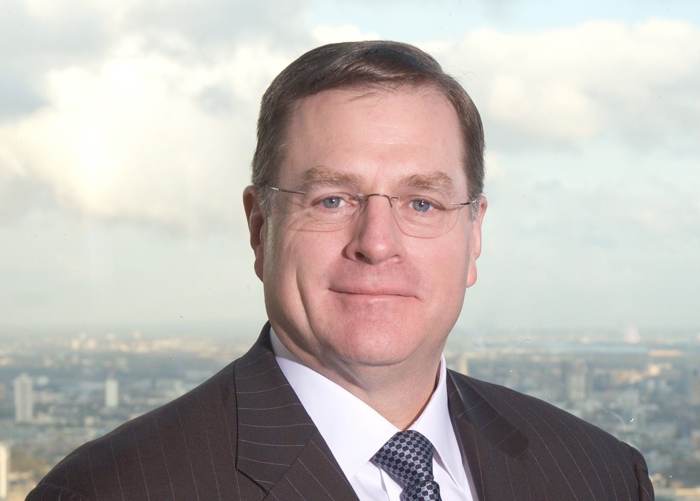Climate risk needs capital, changing industry capacity forever: Aon CEO Case

In order for the insurance and reinsurance industry to address the societal challenges of climate change, more capital is going to be required and the sector capacity base needs to change forever, Aon CEO Greg Case said today.
Speaking at the PwC breakfast briefing in Monte Carlo this morning, Case explained that there is a “generational opportunity” facing the assembled senior insurance and reinsurance market executives.
“We’re about to continue on a journey that’s going to literally define the relevance of risk capital for the next 30 years,” Case said.
Adding that, “Climate change has got to be a priority. It must be a priority, in every way, shape, or form. In many aspects, climate change is going to drive the largest relocation of capital in history. Climate change is tangible risk, it’s what we do every day. The impact is immediate. It’s measurable
“This is a tremendous opportunity. It can be looked at no other way. It’s a tremendous opportunity.”
He highlighted the importance of delivering value to clients of the industry and cited some concerns he has that clients currently feel the industry is too defensive.
“If we can work to close this protection gap, we provide real value for clients, no doubt about it, and we fundamentally strengthen the impact of our industry. But to do so, we must scale to this challenge,” Case explained.
Case said that the industry can be viewed as defensive, or “leaving the playing field” by clients and stakeholders, meaning there is a lot to do if insurance and reinsurance can demonstrate its relevance here.
Capital is key though and Case believes the industry needs to work to mobilise it, in significant volumes, to address issues like climate change.
“We should be getting bigger as an industry to help them sort these risks. Obviously, it’s got to work for the capital, it’s got to make sense. It’s got to work for a risk-return standpoint for the industry. But we should navigate that and get bigger. Instead, we’re getting smaller in the context of this,” he stated.
The defensive posture of the industry “limits our ability to have impact in a meaningful and substantial way,” he explained.
Adding, “There’s only one path you can choose that’s going to actually accelerate impact in our industry. And only one path you can choose is going to change the reach of our industry.
“But it requires you to apply all of our capabilities, It requires us to collaborate on a scale we’ve never achieved before.”
Coming back to capital, Case said, “We’re the players who facilitate the movement of that capital. We’re the players who could help capital understand I can make that investment with less volatility
“So we can make a difference that can be quite substantial. It really gets back to relevance and where we are in the global economy.
“My view this is the chance for us to do something that is beautiful and extraordinary.”
Case cited risk placement as a percentage of GDP as a key metric that demonstrates the relevance of the industry. This has fallen since the mid-1990’s he explained, as the industry has failed to address many emerging issues.
“That’s going to continue, but the question is how do we break that trend?” he asked the audience in Monte Carlo.
Further saying, “We are better positioned than anyone in the world to look inside and understand these risks and to facilitate this capital.
“Capital movement on this topic, changes everything.
“It changes everything in terms of the impact we have as an overall business, the impact we have as an industry, the impact we have at the client level, the impact we have at the societal level.
“But if we collectively keep not thinking about this, we wake up a year from now, five years from now, and we have missed, we have missed a generational opportunity to make a difference.”
He explained that this needs more capital and here Case cited pension funds, sovereign wealth, and effectively the use of alternative capital to assist in enabling the market to “capture this generational opportunity.”
Case said the industry needs to use its capital to facilitate the movement of much larger pools of capital, adding “This is in our wheelhouse.”
“Long term, we need more capital,” Case explained. “We’re going to do some things that actually are going to mean we change forever. And its capacity that changes forever, not capacity that changes in the moment.”
Later he said the industry isn’t innovating fast enough and that there is a lot more to do.
He said it’s, “Too slow and part of it is really needing an understanding of why this this innovation is gonna add economic value.”
“There is massive opportunity sitting out there and if we capture it we can double our industry, in terms of some of the impact it can have over time, and who’s gonna benefit, all the capital’s gonna benefit. If the capital doesn’t benefit it won’t happen anyway, as nobody’s doing this for a free lunch.”
All of which does raise some questions about whether the global insurance and reinsurance market is structured correctly, with the right incentives and alignments to make best use of the capital Case believes is required.
This type of generational opportunity is going to create generational change and it feels like the industry may need to adjust its incentives and how value is distributed to actors in the change, to lower the cost-of-capital of the industry and ensure all these trillions are attracted to these opportunities and so can be deployed.






